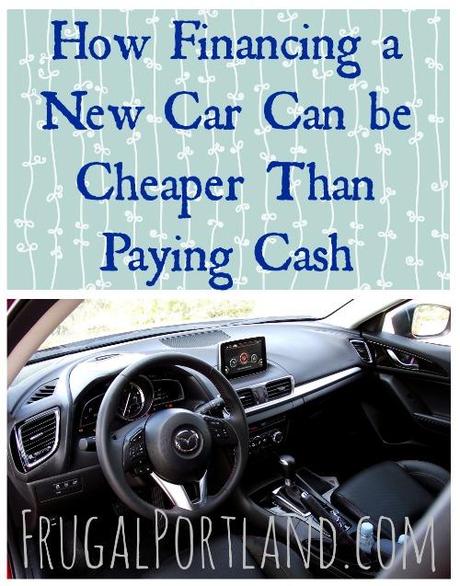What comes to your mind when you think of a car salesperson? If you’re like most Americans, you probably picture a slick-talking con artist looking to bilk you out of every last dime. Car salespeople are among the least trusted professionals in the country, and though people love owning a new car, the process of buying one belongs, along with going to the dentist, on a short list of “Things People Hate to Do.” But almost everyone needs to buy a car from time to time (and some prefer to buy new), so this “necessary evil” pops up in our lives every so often, and we grind through it the only way we know how.

I recently bought a new car. I scoured the internet and read a myriad of horror stories about how people get ripped off. There are entire websites dedicated to fighting back against unfair practices that dealerships are notorious for. But after going through the process– relatively painlessly I might add– I have come to the conclusion that the people that don’t understand the nuances of such a large purchase are the ones who have the worst experiences. Now some (most) dealerships take advantage of this lack of knowledge. But if you truly understand what’s happening. you’ll have all the information you need, and you will walk off the lot with the car you want for a fair price. And we’ll talk about how financing a new car can be cheaper than paying cash.
First Things First: The Mechanics of Buying a New Car
The people who complain the most are those who have unreasonable expectations about car buying. There seems to be a consensus that buyers somehow “deserve” low monthly payments and a low bottom-line price. In practice, two things are related in weird ways, and if you have weak credit, the two are in conflict.
Reality check: you don’t deserve anything. And if you don’t understand why paying $350 a month for 72 months for a $20,000 car, well then, whose fault is that?
You should really be able to buy a car using cash. You don’t necessarily need to cut a check when you close the deal, but if you haven’t saved up the $20,000, then you should really think twice about borrowing money to buy a depreciating asset.
Cars are not houses. They don’t hold their value like houses do. Surprisingly, cars have more in common (financially speaking) with TV sets. At its heart, the value of the car is in its utility: the ability to get you from one place to another just like a TV’s value is in its ability to show you the image on the screen. But what about those fancy features? If they’re any good, they become standard in newer cars and lose value as your car ages. Think of Bluetooth in a car, or streaming Netflix in a television. Five years ago, you had to pay extra for these options. Today, they’re standard on most new purchases.
First and foremost, people buy a car for what’s under the hood. It’s the drivetrain that has value, but since it has a limited useful life (X-number of miles), it depreciates with every mile you put on it.
Auto Loans
John Q. Carbuyer goes to his local Honda dealer and strikes a deal for a 2014 Honda Civic. The sticker price is $21,500, but after some back and forth with the salesperson, they come to an agreement for a purchase price of $20,000, including all fees. The dealership even says he doesn’t have to put any money down, John can walk off the lot without paying a penny. What a deal!
John’s credit isn’t the best though, and the loan he can qualify for carries 7.9% APR. A 36-month loan would mean a $625 monthly payment, but he can’t afford that. “Lucky for me,” thinks John, “the 72-month loan means my monthly payment is only $350.”
Of course, 72 times $350 is $25,200, which is 25% more than his agreed purchase price. What’s more: John is going to be paying this loan for SIX YEARS! Did John just get screwed by the car dealership? Or did he screw himself by not taking out his iPhone and making a quick calculation?
If you have pristine credit, you can typically qualify for the dealership’s best rate, but people with credit scores in the high 700′s aren’t typically taking out five-year car loans on the regular.
Why Dealerships Want You to Finance
You probably know that you can shop around for auto loan rates. Banks and credit unions will typically offer better financing terms than the car companies (except in cases of people with prime credit ratings). This is true, but it’s important to know that the Honda, Toyota, and other car companies make a lot of money on financing. Their primary business might be making cars, but their secondary business is as a bank.
The car company/dealership relationship is a strange one. For convoluted regulatory reasons, car companies cannot sell their vehicles direct to consumers in the US (here is a short, but wonderful podcast on why that is), so the businesses that sell cars are actually independent franchises. Car companies sell their inventory for what is known as the “invoice price”, and then give their franchisees extra incentives to move inventory off the lot. These typically come in the form of cash bonuses for hitting sales volume goals, and even bigger bonuses for originating loans. In other words, the more cars that the dealerships can sell on financing terms, the more money they received from their parent company. This means the best price for a car will almost always come from financing with the dealership.
If you line up your financing through your local credit union, the dealership is going to treat you as a cash buyer. The incentives are not as big for the dealership to agree to a better price, so you will be paying a higher purchasing price. Now, if it’s less money overall to go through another financing institution, then you should do it. But you need to understand the context of why the woman buying the same model car on the same day gets a purchase price $1,500 less than yours.
Even if you can pay cash, it may still pay off to finance. Check the loan documents first (always, always, always read before you sign), but many car companies do not charge a prepayment penalty on their loans. So, if have $20,000 in cash, but your credit doesn’t allow a low interest rate, you’ll get the best price. Then you can turn around and pay off the loan in cash. The dealership doesn’t care because they aren’t the ones providing the financing, the parent company is. As far as the dealership is concerned, they originated the loan and get to count that toward their monthly sales goals.

